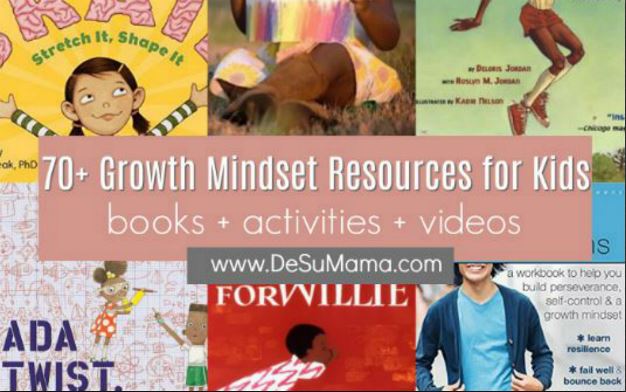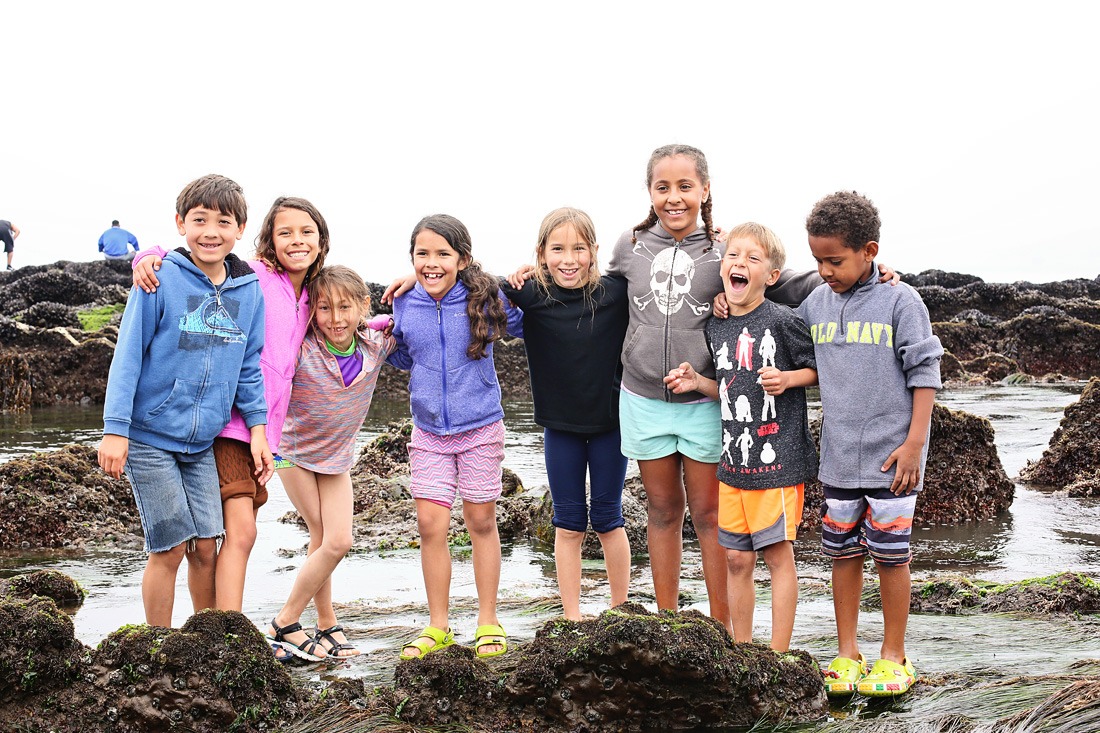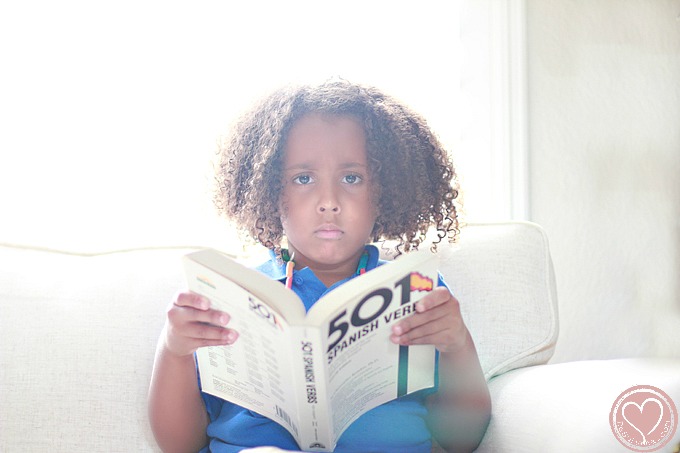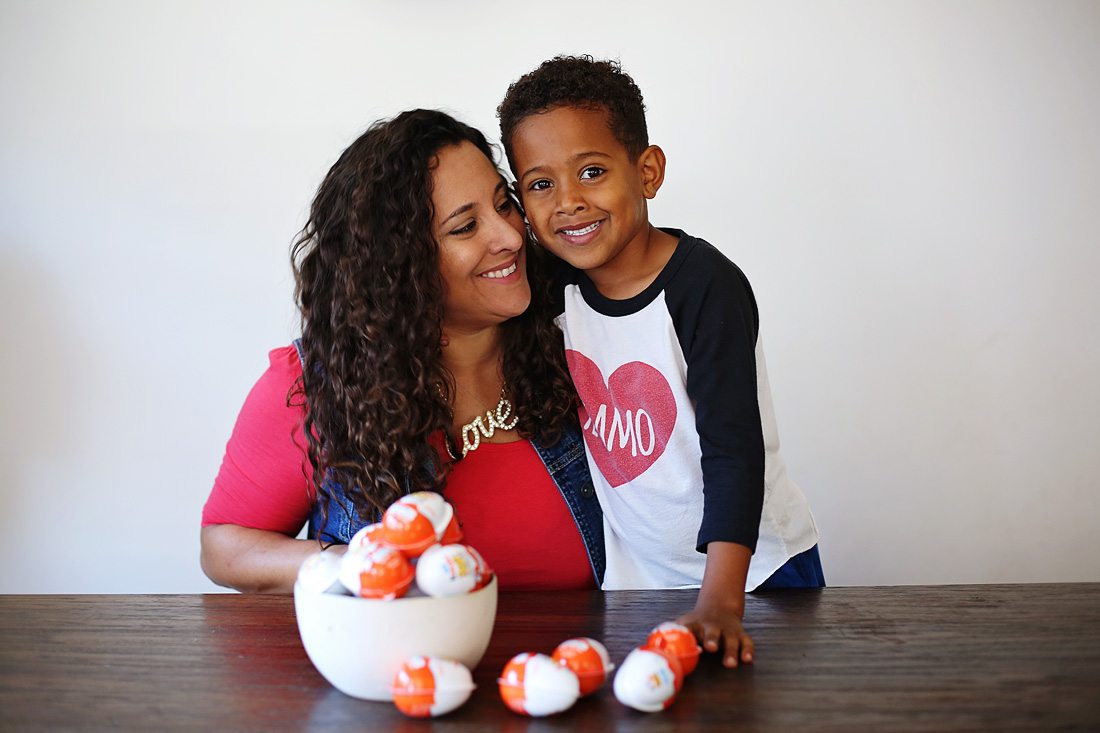So here’s how this started: one day my daughter came home in tears because she had missed a few questions on her science test. Academics aside, her reaction totally freaked me out. I mean, she’s an 8-year-old in second grade who never really studies. Granted she’s also in a dual language learning environment and that alone can be stressful, but the amount of trauma (or, um, drama?) she went through prompted me to start researching a term I kept hearing among other moms: growth mindset for kids.
Fostering a growth mindset (also known as an “incremental theory of personality”) helps our kids navigate social challenges and expectations. An idea pioneered by Stanford researcher Carol Dweck, the two mindsets in which we fluctuate are growth and fixed. Basically, a fixed mindset is the idea that people are born either smart or not, kind or not, strong or not, whereas a growth mindset believes a person can change and grow into new abilities or beliefs.
What is the definition of growth mindset for kids?
If you’re wondering what growth mindset is, you’re not alone! I assumed the theory was based on raising kids to believe in hard work and resilience, but I was stumped on how to put the theory into practice in day-to-day parenting. The growth mindset definitions I read were simplified versions of Carol Dweck’s studies that focused largely on the depiction of the human, elastic brain along with two mindsets.
The science of mindsets and describing our brains as a muscle teach our children that motivation is a matter of effort – not predestined, fixed outcomes. It’s exciting to think of all our neurons firing and making new connections when we learn something new!!! With a growth mindset, a child can learn a new language, create healthy habits or improve personal relationships.
It seems that when you believe people can change; situations aren’t constant; their place in the world can be altered, kids have favorable responses to stressful situations. Encourage motivation by teaching kids that our brains are capable of growth can change a mindset from fixed to growth.
Situations kids might benefit using a growth mindset are:
• When they do not know an answer
• When they make a mistake and/or experience failure
• When they confront difficult circumstances in society
• When they are anxious and/or overwhelmed
These Class Dojo videos are some of my favorite growth mindset videos for kids to define the theory…
A Coping Strategy for Children?
In her most recent growth mindset study (2017), Professor Carol Dweck explains how her findings were meant to improve a child’s coping strategy with failure, challenging social interactions (like bullying) and mistakes. Sometimes using these mindset tools aren’t helpful though, like with easy, ill-defined tasks or those that use failed strategies. She was concerned about misrepresentations of her findings and cautions students cannot just “believe” their way into positive results – especially without hard work and effective strategies. In reading the linked article, I actually got the idea that perhaps sometimes it’s okay to have a fixed mindset after all.
Moms know this all too well – what works for one kid/situation might not work for another – but it’s hard to deny how science has impacted (and improved) my parenting. A simple switch in the way I praise my children has even been helpful!
Praise the process and effort – versus a desired outcome – to inspire intrinsic motivation. Believing growth is possible will lesson fear of failure because anything is possible with effective strategies.
If I can foster anything, intrinsic motivation is what I’d love to give my kids. Yes, I love that they want to please me… but all the studies show that external motivations won’t foster the positive mindset kids need to make good decisions in stressful situations. So whether leaning a second language or standing up to peer pressure, I want them to believe in themselves and that growth/change is always possible.
Growth Mindset Examples: 3 Real Life Scenarios
After all this research, I realized that my daughter often displays fixed mindset tendencies. My reading-above-grade-level (in two languages), A+ 2nd grader has no idea how hard learning can be because, at this point, everything comes easy for her. She thinks she’s smart because, well, everyone tells her she is. Including me.
So what happens when academics do get hard? What happens when she doesn’t know the answer or gets marked wrong on a test? Will she have the coping skills and resilience to see growth potential when challenged? Will she see her many valuable traits even when she doesn’t live up to the “smart” label? The realization almost brought me to tears.
On the other hand, my son (my second child) has a very different mindset. He struggles to read but comes home after school and spends additional hours practicing, motivated to accomplish difficult tasks (like reading in Spanish). No one tells him he’s smart, but his efforts are constantly being praised by teachers and important adults in his life. His mindset is conducive to positive self-talk and the belief that if he practices, he can get better.
Whereas my daughter is settling into a win-lose, all or nothing, fixed mindset, my son is taking risks and striving for progress because he believes in growth.
Understanding how all this is applied in real life helps to model a growth mindset vs fixed mindset for kids. Moms, this is a great time to think about how we view the world too and the mindsets we employ in stressful situations!
I’m also learning what triggers kids to think in a fixed mindset so that I can better encourage them altering my responses accordingly. Some fixed mindset triggers our children face are receiving criticism, or doing poorly compared with others/peers and when threatened or defensive.
It’s amazing how growth mindset questions everything we know about learning and offers tools on how to encourage our kids!
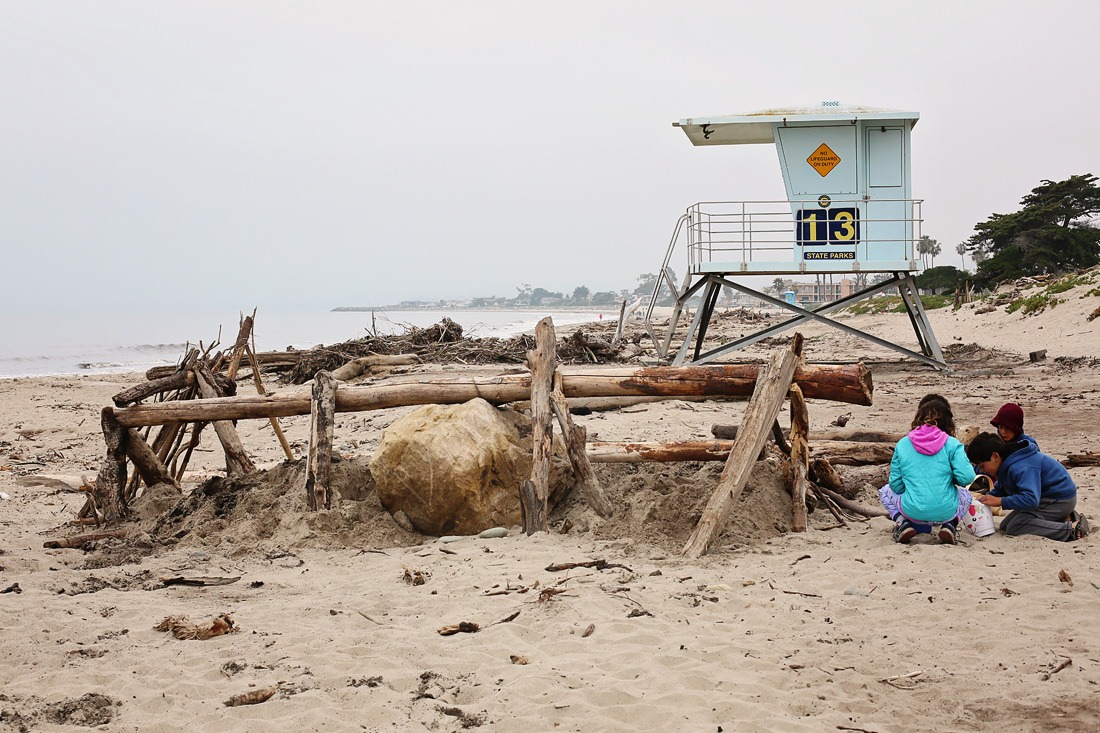 Here are a few real-life scenarios that act as growth mindset examples:
Here are a few real-life scenarios that act as growth mindset examples:
Example 1: She struggles to understand a new math concept at school.
Fixed Mindset: “This is stupid. I’m not good at math, anyway.”
Growth Mindset: She recognizes the challenge and seeks additional help to clarify the material.
Example 2: He strikes out 3 times at his baseball game.
Fixed Mindset: “My dad says I’m good at baseball, but obviously he’s wrong. Only a loser strikes out 3 times in one game.”
Growth Mindset: “That pitcher was awesome. Guess I better work on hitting a curveball next week.”
Example 3: They’ve gotten into an argument/confrontation with a classmate.
Fixed Mindset: “That kid will never change. He’s just a jerk.”
Growth Mindset: “What she said was mean, but I think she learned her lesson and will think twice about being mean to her friends in the future.”
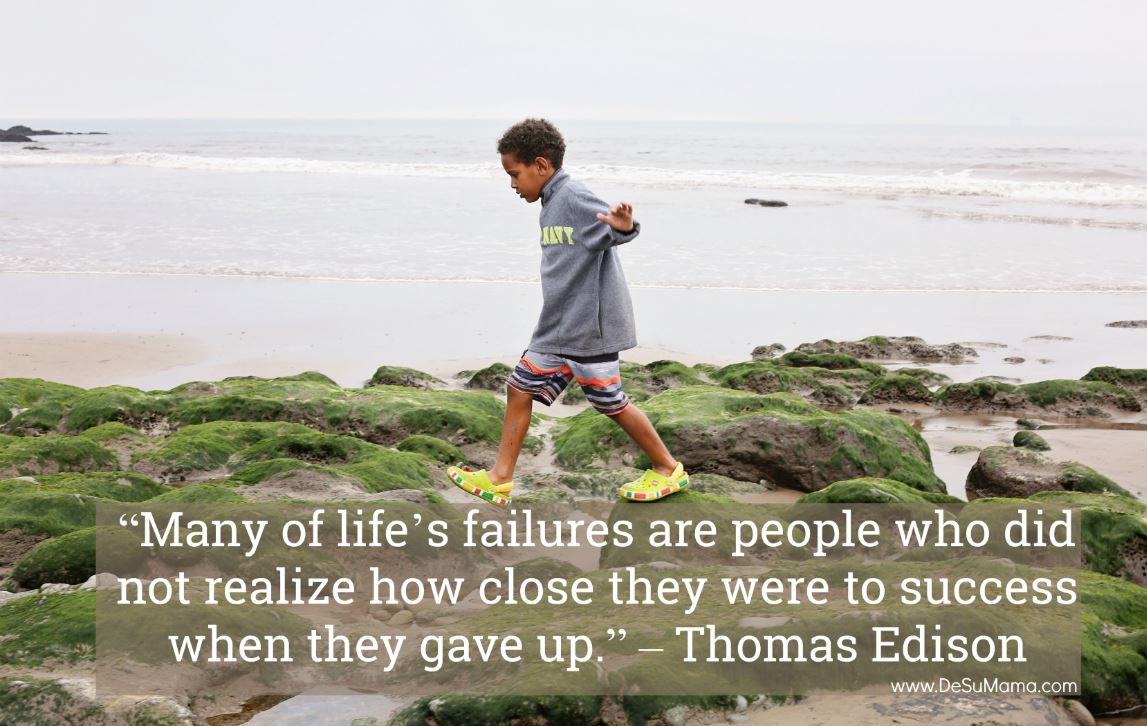 7 Inspirational Growth Mindset Quotes!
7 Inspirational Growth Mindset Quotes!
Words have so much power! Sometimes it feels like these growth mindset quotes inspire me more than my kids, but they certainly don’t hurt. It’s amazing how a simple change in mindset dramatically changes motivation. When we aren’t striving for perfection, the differences between success and failure don’t seem as vast. Imagine what they’re capable of if our kids focus on resilience and growth instead of perfection!
“Failure is an important part of your growth and developing resilience. Don’t be afraid to fail.” -Michelle Obama
“It’s not that I’m so smart, it’s just that I stay with problems longer.” – Albert Einstein
“When you take risks you learn that there will be times when you succeed and there will be times when you fail, and both are equally important.” – Ellen DeGeneres
“I can accept failure, everyone fails at something. But I can’t accept not trying.” – Michael Jordan
“Failure is so important. We speak about success all the time. It is the ability to resist failure or use failure that often leads to greater success. I’ve met people who don’t want to try for fear of failing.” – J.K. Rowling
“Twenty years from now you will be more disappointed by the things you did not do than by the ones you did. So… sail away from the safe harbor. Explore. Dream. Discover.” – Mark Twain
“You can’t be afraid to fail. It’s the only way you succeed. You’re not gonna’ succeed all the time and I know that.” – Lebron James
With the expectations modern society too often places on their shoulders, it’s no wonder kids fixate towards perfection and fear taking risks. And to be honest, just taking the time to think about how my parenting can better encourage kids to find joy in the journey – versus the outcome – helps me be a happier mom.
Every day won’t be perfect… but I guess that’s the point!
Are you ready to foster a growth mindset in kids? Check out our diverse collection of 75+ resources! The list includes our favorite growth mindset books for kids, fun activities, and all the growth mindset videos your kids can watch.
